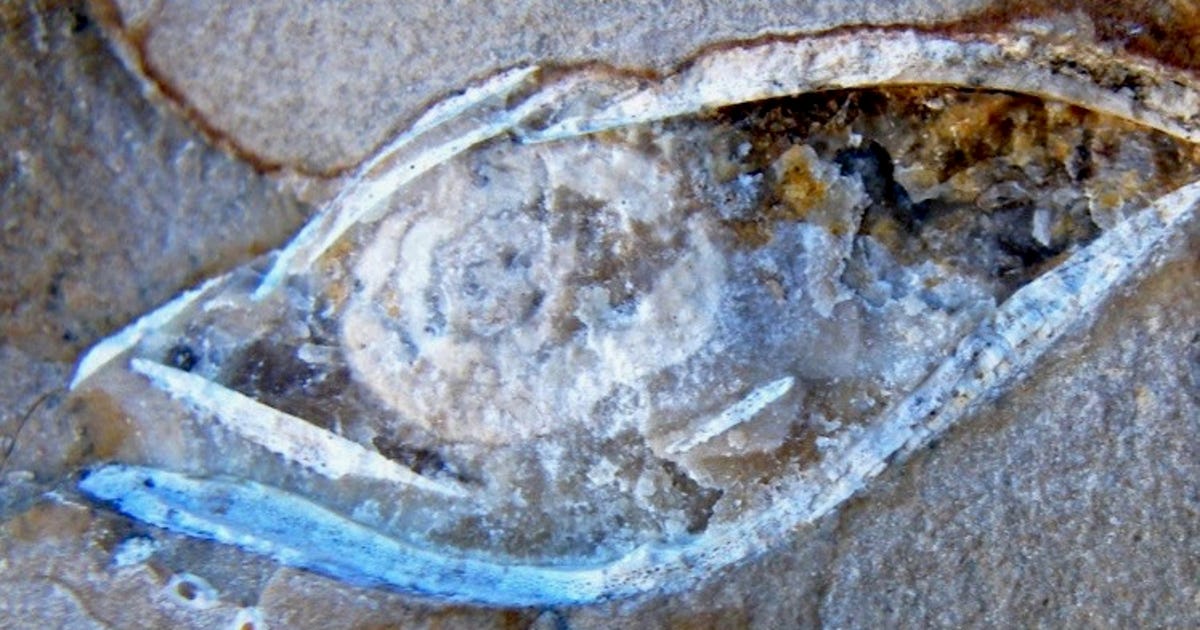
A 380 million-year-old fish heart found embedded in a chunk of Australian sediment has scientists’ pulses racing. Not only is the organ in remarkable condition, but it could also yield clues about the evolution of jawed vertebrates, which include you and me.
The heart belonged to an extinct class of armored, jawed fish called arthrodires that thrived in the Devonian period between 419.2 million and 358.9 million years ago — and the ticker’s a good 250 million years older than the jawed-fish heart that currently holds the “oldest” title. But despite the fish being so archaic, the positioning of its S-shaped heart with two chambers led researchers to observe surprising anatomical similarities between the ancient swimmer and modern sharks.
“Evolution is often thought of as a series of small steps, but these ancient fossils suggest there was a larger leap between jawless and jawed vertebrates,” said professor Kate Trinajstic, a vertebrate paleontologist at Australia’s Curtin University and co-author of a new study on the findings. “These fish literally have their hearts in their mouths and under their gills — just like sharks today,” Trinajstic said.
The study appeared in the journal Science on Wednesday.
Scientists got an extra good look at the organ’s exact location because they were able to observe it in relation to the fish’s fossilized stomach, intestine and liver, a rare happening.
“I can’t tell you how truly amazed I was to find a 3D and beautifully preserved heart and other organs in this ancient fossil,” Trinajstic said.

The white ring shows the spiral valves of the intestine, but the heart isn’t visible here. “I was totally blown away by the fact we could actually see the soft tissues preserved in such an ancient fish,” says John Long, a professor of paleontology at Flinders University in Australia and co-author of a new study on the finding. “I knew immediately it was a very significant find.”
John Long/Flinders University
Paleontologists encountered the fossil during a 2008 expedition at the GoGo Formation, and it adds to a trove of information gleaned from the site, including the origins of teeth and insights into the fin-to-limb transition. The GoGo Formation, a sedimentary deposit in the Kimberley region of Western Australia, is known for its rich fossil record preserving reef life from the Devonian period of the Paleozoic era, including relics of tissues as delicate as nerves and embryos with umbilical cords.
Anatomy of an arthrodire.
“Most cases of soft-tissue preservation are found in flattened fossils, where the soft anatomy is little more than a stain on the rock,” said study co-author professor Per Ahlberg of Sweden’s Uppsala University. “We are also very fortunate in that modern scanning techniques allow us to study these fragile soft tissues without destroying them. A couple of decades ago, the project would have been impossible.”
Those techniques include neutron beams and X-ray microtomography, which creates cross sections of physical objects that can then be used to re-create virtual 3D models.
Recent fish fossil finds have illuminated how “dinosaur fish,” a critically endangered species, stand on their heads and how much the prehistoric fish lizard looked like Flipper the dolphin.
But for those who might not consider such discoveries significant, study co-author Ahlberg has a reminder: that life is, at its most fundamental level, an evolving system.
“That we ourselves and all the other living organisms with which we share the planet have developed from a common ancestry through a process of evolution is not an incidental fact,” Ahlberg said. “It is the most profound truth of our existence. We are all related, in the most literal sense.”
